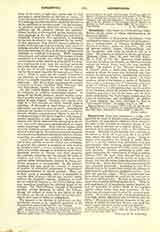

Conservator (from Lat. conservare), a judge delegated by the pope to defend certain privileged classes of persons—as universities, religious orders, chapters, the poor—from manifest or notorious injury or violence, without recourse to a judicial process. Conservators were appointed as early as the thirteenth century. Innocent IV presupposes their existence in the decree (c. 15, de off. et pot. jud., del. I, 14, in VI°) from which we first learn their power. Owing to abuses and complaints the Council of Trent (Sess. ters to lend validity to certain official acts of bishops. XIV, c. v, de ref.) limited their jurisdiction, but new controversies, often recurring, caused Clement VIII, Gregory XV, and Innocent X to define their privileges more precisely. Troubles continuing to arise, especially concerning the conservators of religious orders, Clement XIII (April 23, 1762) decreed that in missionary countries such officials should no longer be chosen, but that all controversies should be referred to the Holy See. From that time forth conservators fell into practical desuetude. According to law, these officials were to be chosen from among the prelates or dignitaries of cathedral and collegiate churches; later from the synodal judges. When a conservator had been chosen by regulars he could not be removed for five years without cause. He had no jurisdiction in cases that required juridical examination. While he took cognizance of all complaints against regulars, he had no authority to receive those of the regulars against others unless they were notorious. In the latter case the conservator decided the question summarily. He could punish with ecclesiastical penalties even high church dignitaries who interfered with his duties. His power was limited, however, to the one diocese in which he had been elected, nor could the same conservator have power in several dioceses.
WILLIAM II. W. FANNING

